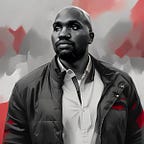On: How to develop superpowers
I have a superpower.
But it’s not what you think it is.
I can’t fly, and I can’t breathe underwater.
So what’s my superpower then?
When I started working in biotechnology manufacturing, I didn’t know anything about equipment (bioreactors, skids) and consumables (filters, process bags) used in manufacturing processes.
Within a few months, I had learned enough to be able to execute daily activities along with other people I worked with.
We were making proteins using living cells, and our job was to keep the cells alive and healthy for as long as possible so they can make as much protein as they possibly can.
I didn’t need to know the fine details of how it all worked, nor was it expected of me.
All I needed was the ability to read instructions in SOPs, and follow production batch records that detailed how equipment should be prepared and operated.
There was a gentleman who had lots of experience, and had acquired so much tribal knowledge (knowledge that is acquired through long years of working on something and can only be transferred through working with that one person).
I would sit next to the him and hound him with questions.
Over time, I developed a pretty good understanding of some steps of the processes.
A few years later, I moved to another role.
In this role, we were making another product, where our job was to infect cells and let them die as soon as possible so we can collect our product of interest.
This was the polar opposite of what I had worked on before, although some of the steps involved in the processes had overlaps.
Expectations were a bit higher in this role, as my team was now working on executing new processes, documenting issues, troubleshooting, and using observations to write SOPs and help improve production batch records.
I still wasn’t expected to know the fine details about equipment and consumables we used..
I would visit the group that was working on developing and transferring the processes to our team and ask as many questions as possible.
I learned and memorized names and descriptions of some of the equipment and consumables we used.
A few years later, when I was interviewing for another role at a different organization, I talked about the processes and spat out all the things I had memorized.
When I started in the role, I realized that I knew so little about the processes and understood even less about the equipment and consumables we used.
I was exposed to so much knowledge; knowledge I would need to acquire so that I could be effective in my work.
It was almost overwhelming.
I acknowledged this to my manager at the time, to which he responded that it was normal and that I will learn over time.
He also told me that I wasn’t hired because I knew everything about what went into the processes, but because I was curious, understood the basics and could learn fast.
So what does this have to do with this ‘superpower’ I claim to have?
Stoic philosopher and emperor Marcus Aurelius, a man who ruled over one of history’s greatest empire, acknowledged the need to ask questions. To ask for help.
In meditations, Marcus wrote, “Don’t be ashamed to need help. Like a soldier storming a wall, you have a mission to accomplish. And if you’ve been wounded and need a comrade to pull you up? So what?”
In any of the roles I worked, I always tried to ask as many questions as I could muster.
I was never afraid to ask dumb questions (as some would call them).
I was never embarrassed of asking foolish or stupid questions.
This is my superpower: asking questions no matter how silly they may sound with no fear of embarrassment or looking bad.
This is how I learn and acquire knowledge that will serve me in the pursuit of my professional and personal goals.
It is a superpower that you or anyone can acquire.
You just gotta be willing to look and sound stupid at times.
